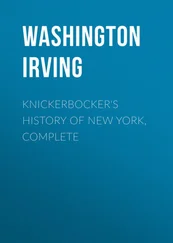But I cease to dwell on the stores of excellent examples to be drawn from the ancient chronicles of the Manhattoes. He who reads attentively will discover the threads of gold which run throughout the web of history, and are invisible to the dull eye of ignorance. But before I conclude let me point out a solemn warning furnished in the subtle chain of events by which the capture of Fort Casimir has produced the present convulsions of our globe.
Attend then, gentle reader, to this plain deduction, which, if thou art a king, an emperor, or other powerful potentate, I advise thee to treasure up in thy heart, though little expectation have I that my work will fall into such hands; for well I know the care of crafty ministers, to keep all grave and edifying books of the kind out of the way of unhappy monarchs, lest peradventure they should read them and learn wisdom.
By the treacherous surprisal of Fort Casimir, then, did the crafty Swedes enjoy a transient triumph; but drew upon their heads the vengeance of Peter Stuyvesant, who wrested all New Sweden from their hands. By the conquest of New Sweden Peter Stuyvesant aroused the claims of Lord Baltimore, who appealed to the Cabinet of Great Britain, who subdued the whole province of New Netherlands. By this great achievement, the whole extent of North America, from Nova Scotia to the Floridas, was rendered one entire dependency upon the British crown. But mark the consequence: the hitherto–scattered colonies being thus consolidated, and having no rival colonies to check or keep them in awe, waxed great and powerful, and finally becoming too strong for the mother country, were enabled to shake off its bonds, and by a glorious revolution became an independent empire. But the chain of effects stopped not here; the successful revolution in America produced the sanguinary revolution in France which produced the puissant Bonaparte, who produced the French despotism, which has thrown the whole world in confusion! Thus have these great Powers been successively punished for their ill–starred conquests; and thus, as I asserted, have all the present convulsions, revolutions, and disasters that overwhelm mankind, originated in the capture of the little Fort Casimir, as recorded in this eventful history.
And now, worthy reader, ere I take a sad farewell, which, alas! must be for ever—willingly would I part in cordial fellowship, and bespeak thy kind–hearted remembrance. That I have not written a better history of the days of the patriarchs is not my fault; had any other person written one as good, I should not have attempted it at all. That many will hereafter spring up and surpass me in excellence I have very little doubt, and still less care; well knowing that, when the great Christovallo Colon (who is vulgarly called Columbus) had once stood his egg upon its end every one at table could stand his up a thousand times more dexterously. Should any reader find matter of offence in this history, I should heartily grieve, though I would on no account question his penetration by telling him he was mistaken—his good–nature by telling him he was captious—or his pure conscience by telling him he was startled at a shadow. Surely, when so ingenious in finding offence where none was intended, it were a thousand pities he should not be suffered to enjoy the benefit of his discovery.
I have too high an opinion of the understanding of my fellow–citizens to think of yielding them instruction, and I covet too much their good–will to forfeit it by giving them good advice. I am none of those cynics who despise the world, because it despises them; on the contrary, though but low in its regard, I look up to it with the most perfect good–nature, and my only sorrow is, that it does not prove itself more worthy of the unbounded love I bear it.
If, however, in this my historic production, the scanty fruit of a long and laborious life, I have failed to gratify the dainty palate of the age, I can only lament my misfortune, for it is too late in the season for me even to hope to repair it. Already has withering age showered his sterile snows upon my brow; in a little while, and this genial warmth which still lingers around my heart, and throbs, worthy reader, throbs kindly toward thyself, will be chilled for ever. Haply this frail compound of dust, which while alive may have given birth to naught but unprofitable weeds, may form a humble sod of the valley, whence may spring many a sweet wild flower, to adorn my beloved island of Mannahata!
THE END.
Beloe's Herodotus.
Faria y Souza: Mick. Lus. note b. 7.
Sir W. Jones, Diss. Antiq. Ind. Zod.
MSS. Bibliot. Roi. Fr.
Plutarch de Plac. Philos. lib. ii. cap. 20
Achill. Tat. isag. cap. 19; Ap. Petav. t. iii. p. 81; Stob. Eclog. Phys. lib. i. p. 56; Plut. de Plac. Philos.
Diogenes Laertius in Anaxag. 1. ii. sec. 8; Plat Apol. t. i. p. 26; Plut. de Plac. Philos; Xenoph. Mem. 1. iv. p. 815.
Aristot. Meteor. 1. ii. c. 2; Idem. Probl. sec. 15; Stob. Ecl. Phys. 1. i. p. 55; Bruck. Hist. Phil, t. i. p. 1154, etc.
Philos. Trans. 1795, p. 72; Idem. 1801, p. 265; Nich. Philos. Journ. i. p. 13.
Aristot. ap, Cic. lib. i. cap. 3.











